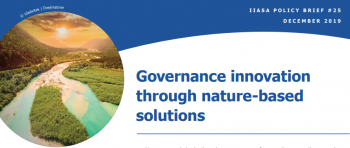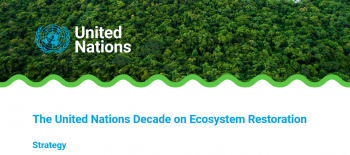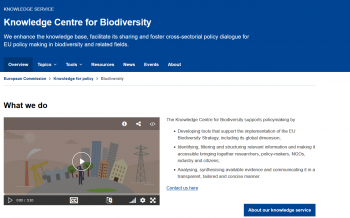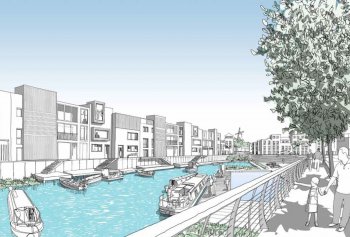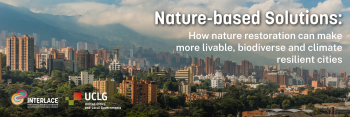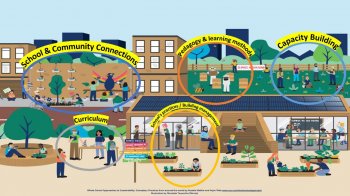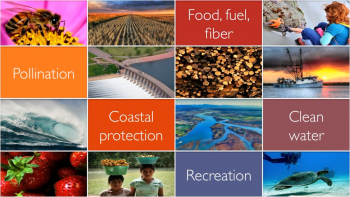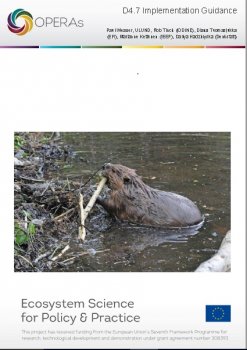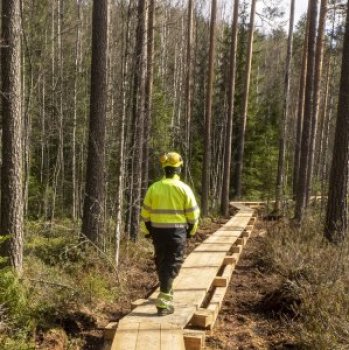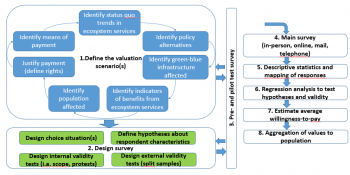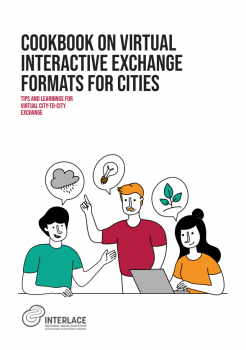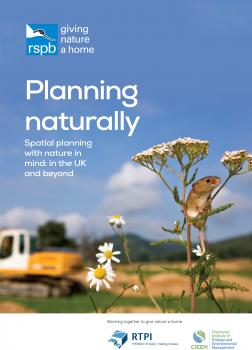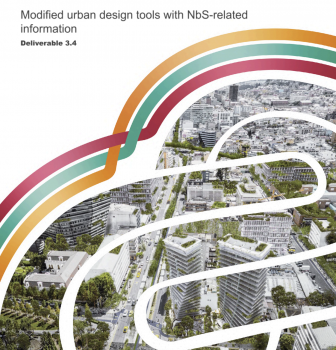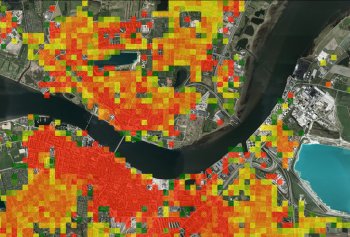Marketplace
Connecting Nature communication, social media & events
In 2017, when Connecting Nature began, the concept of nature-based solutions was in its infancy. Since then, our partners have played an important role in creating and raising awareness about nature-based solutions and about the Connecting Nature Framework as a methodological approach to
Governance innovation through nature-based solutions - Policy Brief December 2019
Understanding the factors that characterized successful nature-based solution governance models is essential for advancing policy instruments and institutional reform that can better enable the implementation and up-scaling of these solutions. Researchers at IIASA and the University of Geneva
The United Nations Decade on Ecosystem Restoration Strategy
The 2030 Agenda for Sustainable Development seeks to end poverty, conserve biodiversity, combat climate change and improve livelihoods for everyone, everywhere. These objectives, encapsulated in 17 Sustainable Development Goals (SDGs) are unlikely to be met unless ecosystem degradation is stopped
Knowledge Centre for Biodiversity
The Knowledge Centre for Biodiversity supports policymaking by Developing tools that support the implementation of the EU Biodiversity Strategy, including its global dimension; Identifying, filtering and structuring relevant information and making it accessible bringing together
Innovative Housing
Innovative approach for housing development by fostering the evolution of active and sustainable communities.
INTERLACE MOOC on Nature-based Solutions: (6) MONITORING and evaluating NbS using a co-creation approach
Urban areas across the globe are facing unprecedented challenges—pollution, climate change, urban sprawl—and traditional solutions are falling short. The INTERLACE project’s Massive Open Online Course showcases how nature-based solutions offer a promising approach to help create resilient,
Schools as Innovation Hubs for the Green Transition: Transforming schools into NBS Living Labs
What does it mean for a school to be an innovation hub? These slides from NBS EduWORLD project can give you a better idea!
Natural Capital & Ecosystem Services: an introduction to the concepts (video)
Dr. Anne Guerry, Chief Strategy Officer and Lead Scientist for the Natural Captial Project, introduces the concepts of natural capital and ecosystem services.
Swiss Biodiversity Forum
The Swiss Biodiversity Forum is the scientific competence centre for biodiversity in Switzerland. It aims at supporting the research of biodiversity and facilitates the co-operation of scientists and policy-makers in the administration department, in politics, economy and society.
- Guidance
Netbiome-CSA Biodiversity Toolbox
The Biodiversity Toolbox of the NetBiome-CSA network—a partnership for research and sustainable management of (sub)tropical biodiversity in European Overseas Regions (ORs) & Territories (OCTs)—provides a database of stakeholders in biodiversity management and research, including areas of
OPERAs D4.7 Implementation Guidance
The concepts of Ecosystem Services (ES) and Natural Capital (NC) hold a powerful potential to support more sustainable development, improve ecosystem restoration and conservation, provide nature-based solutions and improve the wellbeing of people. Harnessing this potential in support of policy
Seedbed Intervention: Lahti
The City of Lahti’s seedbed intervention took place at the Lahti health forest (pilot area).There are discussions on connecting the pilot area with the nearby Likolampi route to increase the positive impacts on health and wellbeing. The nature reserve of Kintterö is located on the western side of
Method Factsheet - Stated Preference Valuation Methods
Stated preference valuation is family of techniques which use individual respondents' statements about their preferences to estimate change in utility associated with a proposed increase in quality or quantity of an ecosystem service or bundle of services. Respondents are presented with one or
Cookbook on virtual interactive exchange formats for cities
The ‘Cookbook on virtual interactive exchange formats for cities’ is a collection of virtual collaboration methods tested and evaluated in the INTERLACE project. It can be a particular challenge to build collaboration and trust between cities merely online, but the available methods and tools were
Planning Naturally. Spatial planning with nature in mind: in the UK and beyond
RSPB, CIEEM and the RTPI have come together to show how planning for biodiversity should be integral to every part of the planning process and to inspire with examples of good practice, whatever country you are working in.The report is structured around 12 principles of good spatial planning, and
Conexus key learning factsheet series - Monitoring NbS together for greater uptake and upscaling
Successful implementation and mainstreaming of Nature-based solutions (NbS) require understanding how their benefits are perceived within society and businesses. To build support and collaboration in evaluating NbS benefits, the CONEXUS project has developed an assessment frame, including a
INTERLACE Modified urban design tools with NbS-related information
In the context of rapid urbanization and environmental degradation, the integration of nature-based solutions (NbS) into urban design has emerged as a pivotal strategy for fostering sustainable urban environments. This approach not only addresses ecological challenges but also enhances the quality
How to tell your city’s story Connecting Nature Framework - Sarajevo –
The development of a resilient city pleasant for the life of citizens of all ages and meeting their needs is one of the goals of the city. Thus, within the project, the Sarajevo exemplar was created, as first nature-based solution, which will provide the inhabitants of the city a place for
Urban Heat Atlas
Methodology for detailed urban heating demands and related energy consumption.
- ‹ previous
- 26 of 45
- next ›


